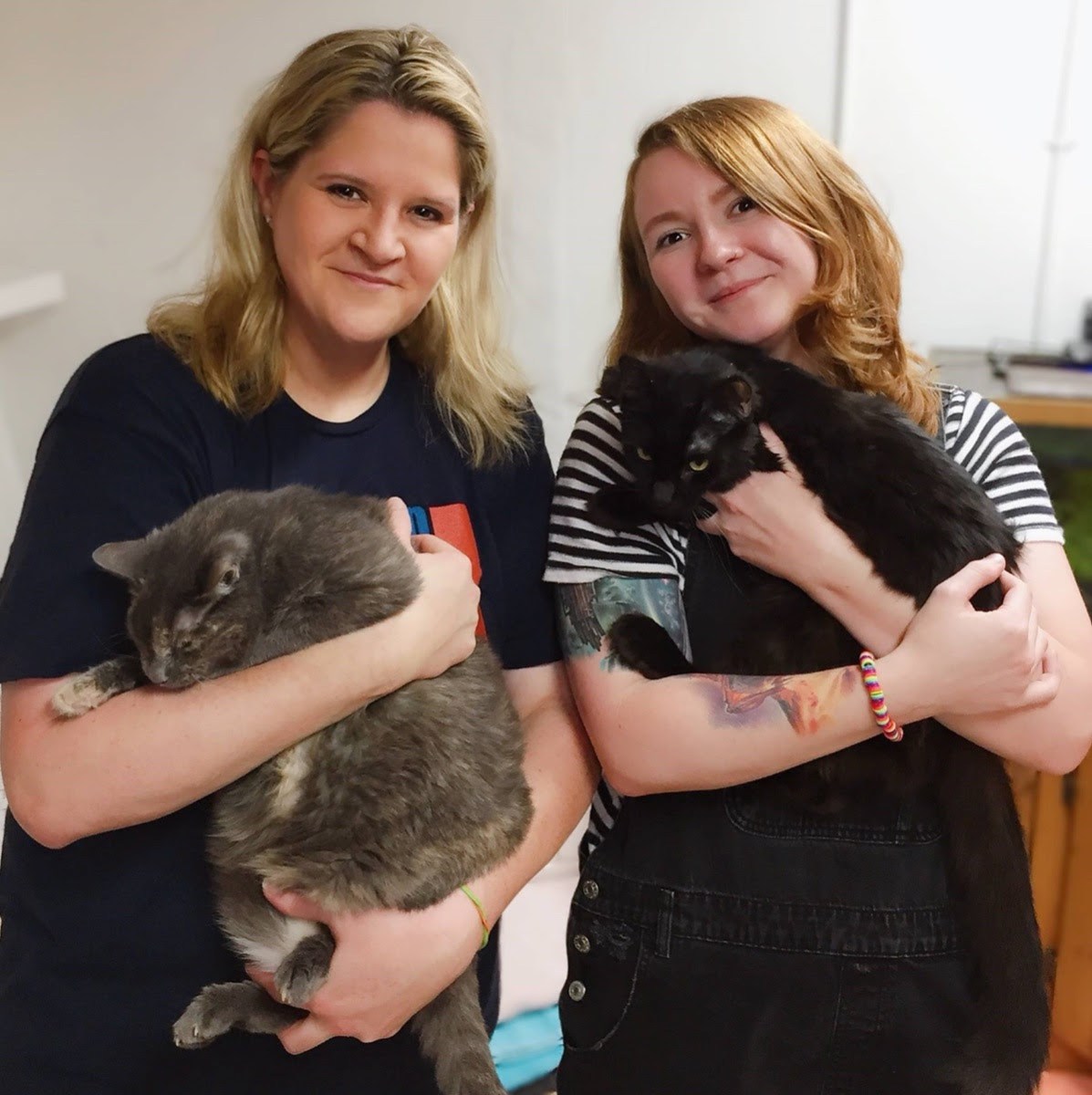
At the Feline Leukemia Adoption Center at Austin Pets Alive!, cats roam cage free with space to lounge, cat trees and ledges to climb, toys to play with, and a fish tank for their entertainment, until they find their adoptive homes. The center is a popular destination for APA! visitors. Founded in 2011 it is the largest FeLV adoption center in the United States. During peak visiting hours, the space purrs with cats playing and being petted by potential adopters and volunteers.
In most shelters across the nation, it’s still common practice to euthanize any cat who tests positive for FeLV, despite the fact that these cats live happy lives. Thousands of cat deaths each year are a result of outdated myths, unfounded fears, and confusion about FeLV and the best testing methods for this virus.
The momentum for saving this special population of felines is growing, as is an appreciation for the people stewarding this lifesaving effort. In June, 2019, Monica Frenden, Maddie's Director of Feline Lifesaving at American Pets Alive!, and Natascha Hamman, FeLV Program Manager at Austin Pets Alive!, were named Shelter Medicine Heroes by the Association of Animal Welfare Advancement and Idexx for their work in saving, and teaching others how to save, FeLV+ cats; not to mention the dozens of shelters Frenden has helped start their own FeLV adoption programs.
In Austin, Texas, the safest city in the country for cats, FeLV hasn't been a death sentence since 2011 when the center opened at APA!. Now, hundreds of cats with this virus, who would have previously been euthanized, find adoptive homes each year in Austin. #ThankstoMaddie research shows that 95% of adopters with FeLV cats have positive experiences.
“[Austin Pets Alive!] felt that by starting an adoption program there was an opportunity to educate pet owners and practices about the virus, and most importantly, [show] that positive FeLV cats are not suffering and make great companions,” Frenden said in the AWAA newsletter announcing the award. “APA! found that starting the program not only saved hundreds of cats a year, but it started important conversations with their community and peers about the virus.”
Even a few years ago, the practice of saving FeLV cats was frowned upon due to the misconceptions and lack of information about the disease. Now in 2019, thanks to the unwavering leadership and advocacy of people like Frenden and Hamman, we live in a world where not only are these cats given a chance at life, but that chance is honored and recognized by national organizations.
Interested in learning more about how you can save this special population of cats? Visit American Pets Alive! for a FELV Toolkit and apply to attend our Feline Lifesaving Masterclass, taught by Monica Frenden.